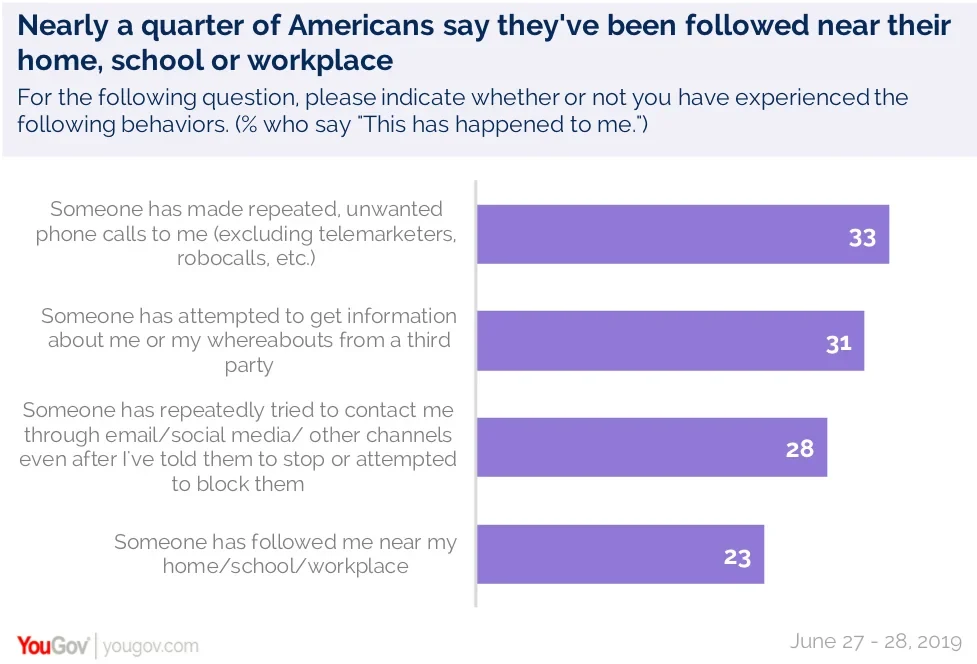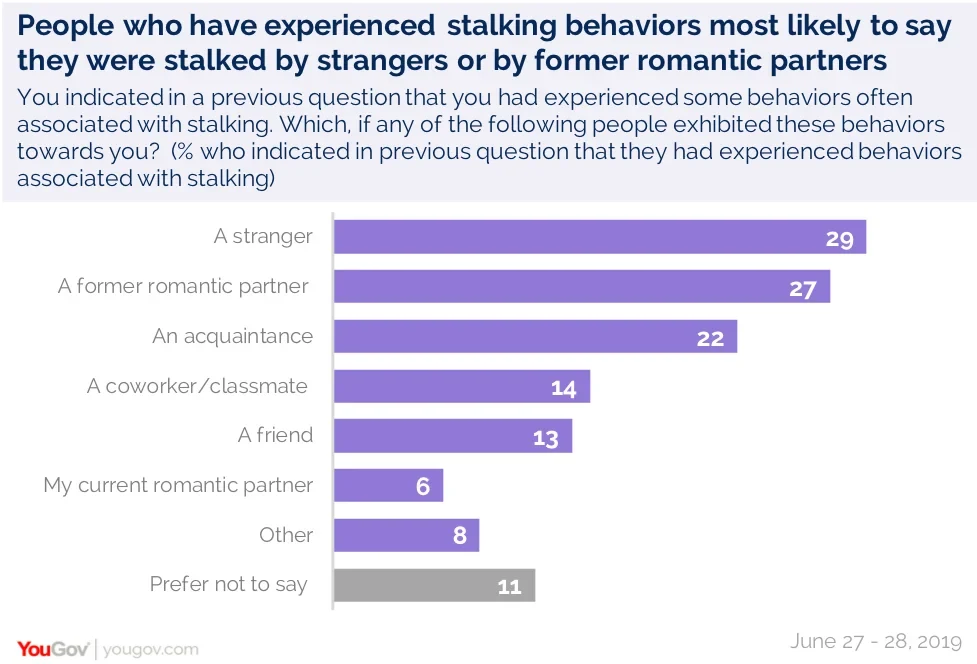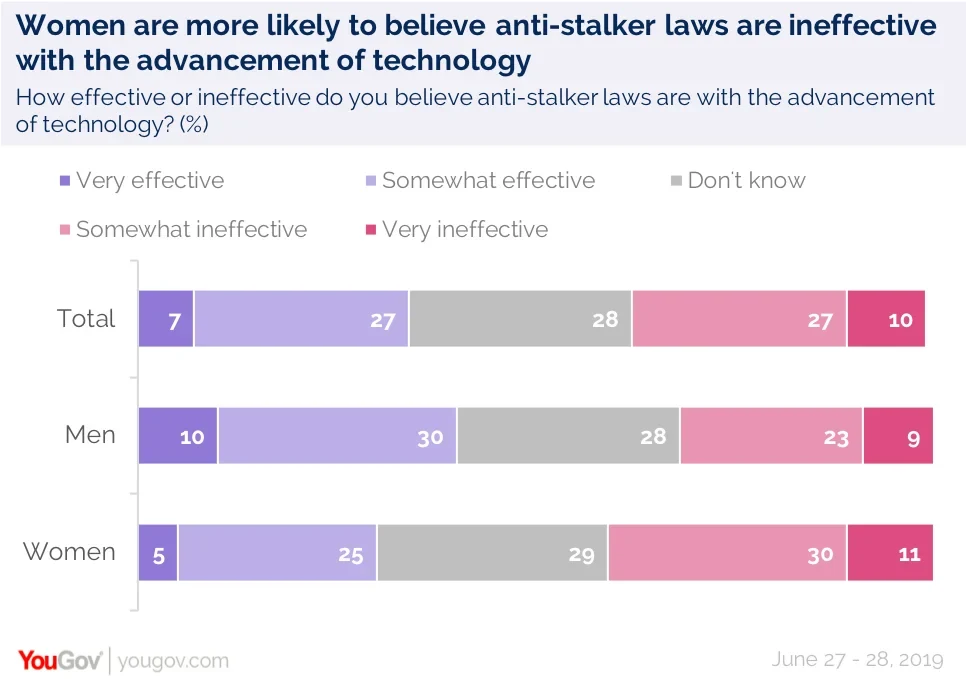It’s been 30 years since Rebecca Schaeffer, a young, up-and-coming actress was murdered at her home by a fan who had been stalking her for three years. Schaeffer’s murder raised several issues regarding celebrity protections and legal action against stalkers. Shortly after Schaeffer’s death, California passed the country’s first anti-stalker law.
Stalking remains an issue to this day, and it affects more people than you might think. Over half (53%) of Americans say that they’ve experienced at least one behavior associated with stalking.
Victim services organization Safe Horizon notes that stalking can include a wide array of behaviors. Among other things, a stalker might follow someone near their home or workplace, make repeated and unwanted phone calls, or attempt to get information by talking to the person’s friends or coworkers.
YouGov data finds that nearly a quarter (23%) of Americans say they’ve been followed by someone near their home, school or workplace. One-third say that someone has made repeated, unwanted phone calls to them, while a similar number (31%) say that someone has tried to find out information about their whereabouts from a third party.
When asked which people had displayed these behaviors towards them, 29% said they’d been stalked by a stranger. A similar number (27%) said that a former romantic partner had displayed these behaviors, while 22% said they’d had experiences like this with an acquaintance.


A year after Rebecca Schaeffer’s death in 1989, California passed the first anti-stalking law in the country. It made it a crime to repeatedly follow or harass another person and make them fear for their safety. Today, all 50 states have anti-stalking laws.
But there are questions about how effective anti-stalking laws are with the advent of technology.
Americans are closely divided: 35 percent believe that even with the advancement of technology, anti-stalker laws are still effective. Another 37 percent believe they’re somewhat or very ineffective at this point. Women (41%) are more likely than men (32%) to believe these laws are now ineffective.

If you or a loved one is or has been the victim of a stalker, you can access information, counseling and other resources through the Victim Connect Resource Center at 855-484-2846 or by visiting victimconnect.org.
See full results here.
Methodology: Total unweighted sample size was 1,180 US adults ages 18+. The responding sample is weighted to provide a representative reporting sample. The survey was conducted online June 27-28, 2019.
Do you believe anti-stalker laws are effective given the advancement of technology? Sign up for our panel and follow us on Twitter to weigh in on issues that matter to you.
Image: Wikimedia Commons









